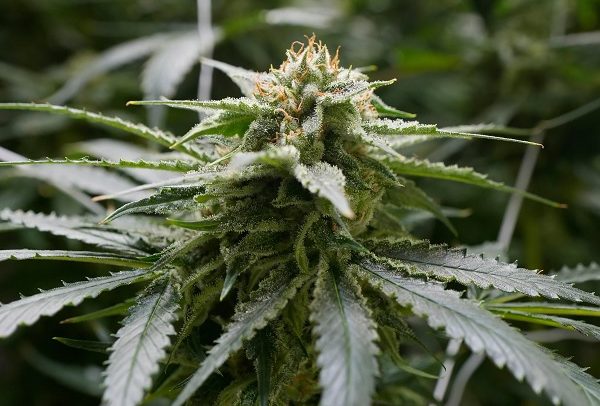Parliament amended the Narcotic Control Commission Act of 2020 (Act 1019) on Wednesday to allow the cultivation of marijuana, effectively legalising the country’s longstanding tolerance for the marijuana-based medicines.
Until now, marijuana had been technically illegal, with the use of plants for the processing or extraction without lawful authority an offence under the law.
The vote to permit professional cultivation of the plant, with the issuance of licences by the Minister for Interior, will allow the country’s pharmaceutical companies, which use the plant for production of medicines and other beneficial use, to have a legal source of supply.
The amendment comes after the Supreme Court struck down Section 43 of the Narcotic Control Commission Act, which allowed for the production of some varieties of cannabis for therapeutic and industrial purposes.
The Section says, “The Minister, on the recommendation of the Commission, may grant a licence for the cultivation of cannabis which has not more than 0.3% THC content on a dry weight basis for industrial purposes for obtaining fibre or seed or for medicinal purposes.”
The Supreme Court argued that the measure violated Article 106 of the 1992 Constitution. Despite an appeal filed by the Attorney General’s Office, the Supreme Court dismissed the review application in a 5-4 decision.
Members of Parliament, however, underlined the necessity of cultivating particular varieties of cannabis during the parliamentary debates of the Narcotic Control Commission (Amendment) Bill.
The MPs emphasised the potential benefits of harnessing cannabis’s properties for industrial and therapeutic purposes, noting that they were given the Minister of Interior the power to issue licenses for cannabis cultivation.
They believed this would facilitate the growth of the marijuana industry and open avenues for further exploration of its potential.
Background
Parliament on March 20, 2020 passed the Narcotics Control Commission Bill, 2019, to treat drug dependence as a public health issue rather than focusing on law enforcement, incarceration, punishment and repression.
“The fundamental goal of drug policies should be to improve the health, safety, security and socio-economic well-being of people by adopting appropriate measures to combat illicit crop cultivation and use of narcotic drugs and psychotropic substances, as well as its associated substance,” a report on the bill, presented to the plenary by the Committee on Defence and Interior, said.
The bill would address the weaknesses in the outgoing PNDC Law 236, which came into force before the commencement of the Fourth Republican Constitution.
PNDC Law 236 restricts the confiscation of illegal property to drug-related ones and does not adequately deal with the freezing of accounts of drug dealers.
The law was to address the weaknesses in the outgoing PNDC Law 236, which came into force before the commencement of the Fourth Republican Constitution.
The Narcotics Control Commission Bill, 2019, with 108 clauses, and grouped into seven sections and two schedules, seeks to establish a body corporate with perpetual succession to be known as the Narcotics Control Commission.
The commission would be responsible for ensuring public safety by controlling and eliminating trafficking in prohibited narcotic drugs and preventing the illicit use of precursors, coordinating the treatment and rehabilitation of drug addicts.
It would also act in consultation with other public agencies and find alternative means of livelihood for farmers who cultivate illicit narcotic plants.
The Parliament Committee on Defence and Interior noted that it was imperative for the government to ensure that legislation met current international standards with respect to narcotic offences.
Additionally, a peer review mechanism conducted by the Inter-Governmental Action Group against Money Laundering in West Africa, an ECOWAS specialised institution in 2016, makes it essential to review the narcotics legislations, the report said.
By Ernest Kofi Adu, Parliament House


